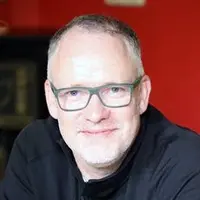
Michael Biehl
University of Groningen
A 2-week summer course hosted at Chalmers University of Technology on analytical approaches to language acquisition and higher-level cognition.
Analytical Connectionism is a 2-week summer course on analytical tools, including methods from statistical physics and probability theory, for probing neural networks and higher-level cognition. The course brings together neuroscience, psychology and machine-learning communities, and introduces attendees to analytical methods for neural-network analysis and connectionist theories of higher-level cognition and psychology.
Connectionism, a key theoretical approach in psychology, uses neural-network models to simulate a wide range of phenomena, including perception, memory, decision-making, language, and cognitive control. However, most connectionist models remain, to a certain extent, black boxes, and we lack a mathematical understanding of their behaviours. Recent progress in theoretical neuroscience and machine learning has provided novel analytical tools that have advanced our mathematical understanding of deep neural networks, and have the potential to help make these “black boxes” more transparent.
During the School, teams of students work closely to develop research projects on topics related to analytical connectionism, presenting initial proposals during week one and interim results at the School’s conclusion. Participant projects from prior Schools have led to publications at NeurIPS. Furthermore, students collaboratively produce lecture notes, which will then be collected in a peer-reviewed special issue to create a permanent resource for the community. Participant projects and notes from prior schools have led to publications at venues like NeurIPS and PMLR.
Additionally, students are grouped based on their expertise and preferences and assigned to take notes for a specific lecturer. These notes are peer-reviewed and published in a special journal issue. Currently, lecture notes from the 2023 and 2024 editions of the school are being collected into a publication in the Proceedings of Machine Learning Research (PMLR). This initiative aims to make the content accessible to future participants and those who were unable to attend, while providing note-takers with the opportunity to contribute to a formal publication.
This course will introduce:
During the course, you will:
All dates are to be intended anywhere on earth time (AoE).
Applications to participate in the 2026 School on Analytical Connectionism are now closed.
This course is appropriate for graduate students, postdoctoral fellows, and early-career faculty in psychology, neuroscience, physics, computer science, and mathematics. The course is limited to 40 attendees to ensure a balance across fields. Attendees are expected to have a strong background in one of these disciplines and to have made some effort to introduce themselves to a complementary discipline.
We are committed to making this course open to all talented individuals. We strongly encourage students from underrepresented groups to apply and will offer bursaries to applicants who face financial barriers. In circumstances where all other things are equal, priority will be given to qualified applicants from underrepresented groups.
There is a course fee of 2,000 SEK. Attendees are expected to cover their own travel, accommodation and other subsistence expenses. Lunch and coffee/tea breaks will be provided on course days, and there will be one course dinner.
Cancellation policy:
Financial assistance via travel grant may be available for successful applicants who find it difficult to take up a place for financial reasons. Applicants are asked to indicate in their application if they would like to be considered for financial aid. The amount of financial aid available will depend on the course funding from grants and sponsors.
This year’s school will unite theoretical scientists with computational and experimental neuroscientists and psycholinguists to focus on language acquisition. The curriculum will address how a learner can infer structured grammatical knowledge from raw sensory and linguistic input. We will disseminate cutting-edge analytical tools capable of providing a principled understanding of this process in high-dimensional, non-linear systems.
Topics will include:

New York University

Chalmers University of Technology & Gothenburg University